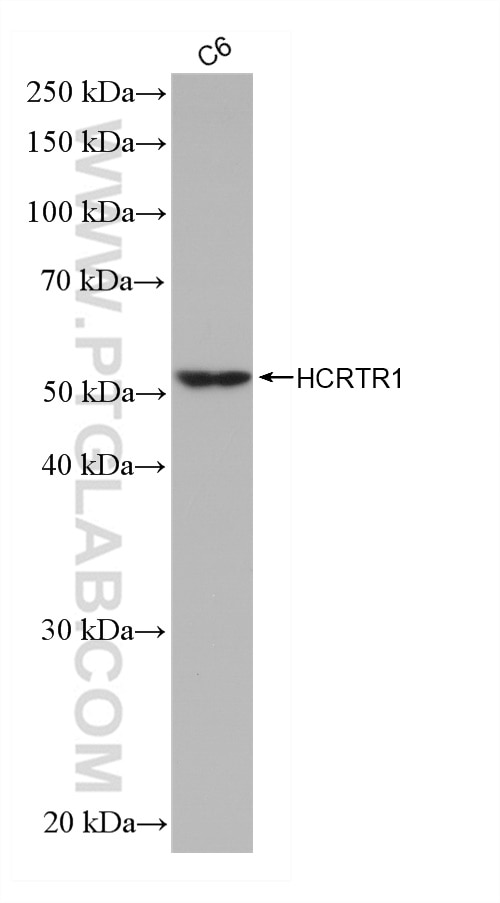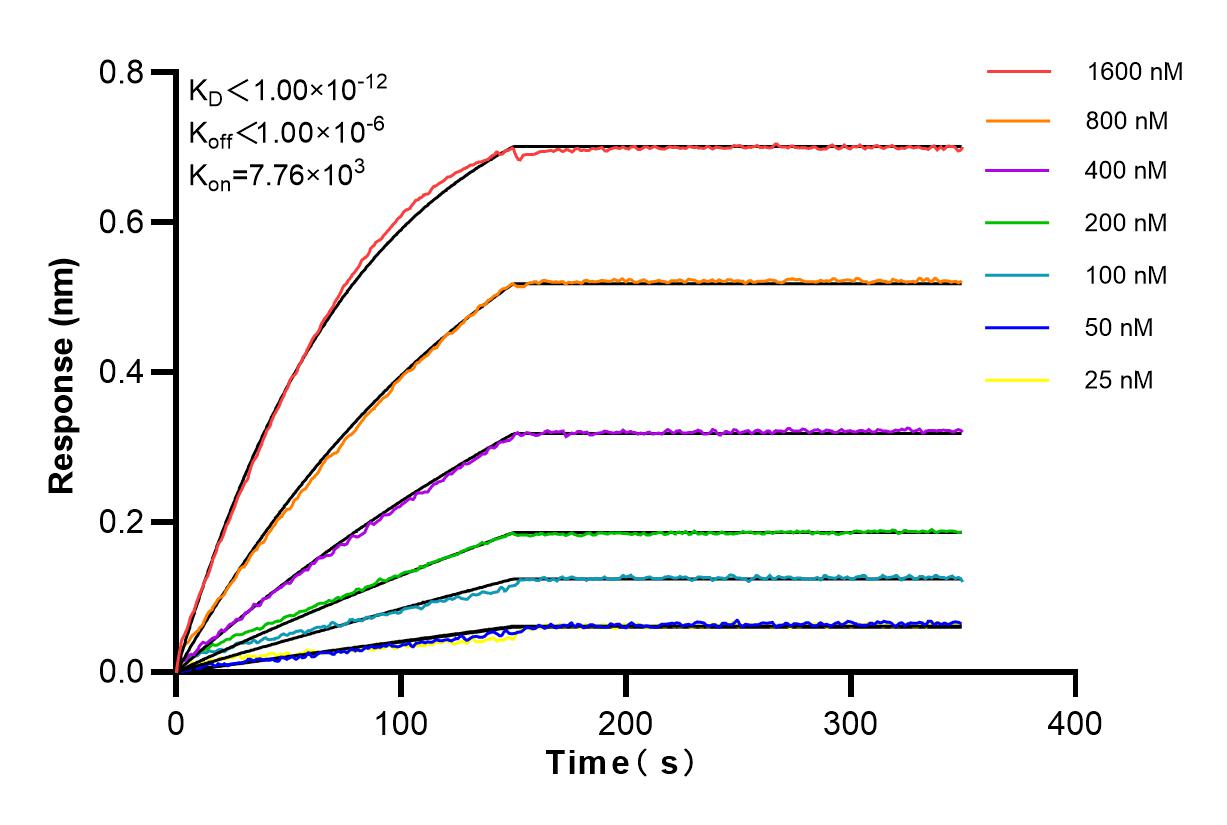Validation Data Gallery
Tested Applications
| Positive WB detected in | C6 cells |
Recommended dilution
| Application | Dilution |
|---|---|
| Western Blot (WB) | WB : 1:500-1:2000 |
| It is recommended that this reagent should be titrated in each testing system to obtain optimal results. | |
| Sample-dependent, Check data in validation data gallery. | |
Product Information
82921-1-RR targets HCRTR1 in WB, ELISA applications and shows reactivity with human, rat samples.
| Tested Reactivity | human, rat |
| Host / Isotype | Rabbit / IgG |
| Class | Recombinant |
| Type | Antibody |
| Immunogen |
CatNo: Ag12269 Product name: Recombinant human HCRTR1 protein Source: e coli.-derived, PGEX-4T Tag: GST Domain: 321-425 aa of BC074796 Sequence: KRVFGMFRQASDREAVYACFTFSHWLVYANSAANPIIYNFLSGKFREQFKAAFSCCLPGLGPCGSLKAPSPRSSASHKSLSLQSRCSISKISEHVVLTSVTTVLP 相同性解析による交差性が予測される生物種 |
| Full Name | hypocretin (orexin) receptor 1 |
| Calculated molecular weight | 425 aa, 48 kDa |
| Observed molecular weight | 54 kDa |
| GenBank accession number | BC074796 |
| Gene Symbol | HCRTR1 |
| Gene ID (NCBI) | 3061 |
| Conjugate | Unconjugated |
| Form | |
| Form | Liquid |
| Purification Method | Protein A purification |
| UNIPROT ID | O43613 |
| Storage Buffer | PBS with 0.02% sodium azide and 50% glycerol{{ptg:BufferTemp}}7.3 |
| Storage Conditions | Store at -20°C. Stable for one year after shipment. Aliquoting is unnecessary for -20oC storage. |
Background Information
The hypocretin receptor 1 (OX1R, also named HCRTR1) is a G protein-coupled receptor and is a critical participant in the regulation of motivated behavior (PMID:28971565). HCRTR1 is associated with the regulation of motivation, reward, and autonomic functions. HCRTR1 shows a selective binding affinity for HCRT1/orexin-A. Moreover, HCRTR1 and HCRTR2 share 64% sequence similarity in humans (PMID:34052813).
Protocols
| Product Specific Protocols | |
|---|---|
| WB protocol for HCRTR1 antibody 82921-1-RR | Download protocol |
| Standard Protocols | |
|---|---|
| Click here to view our Standard Protocols |


